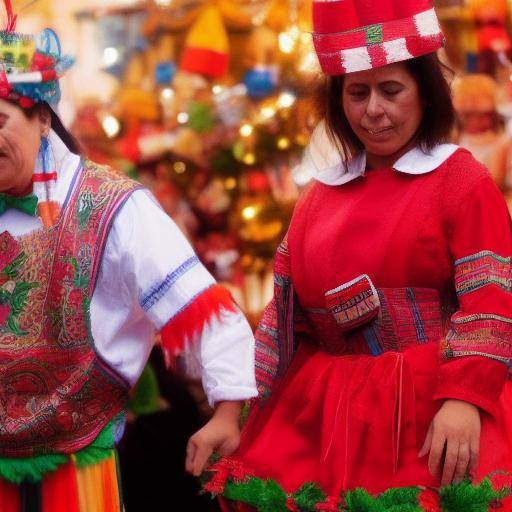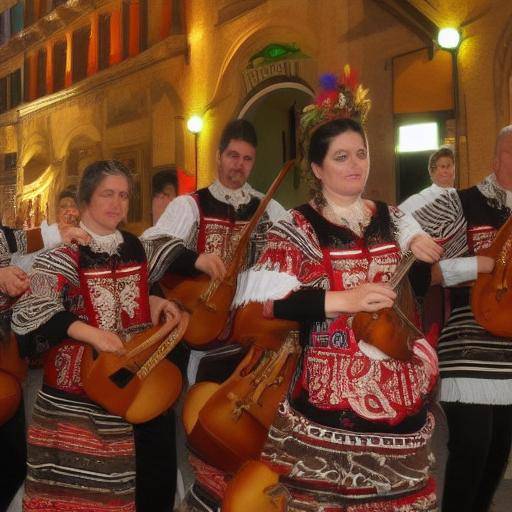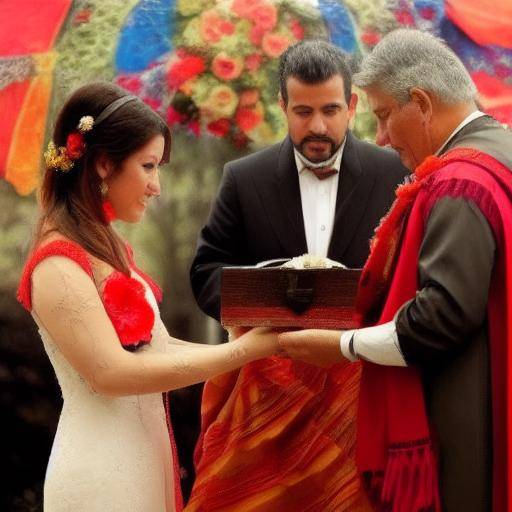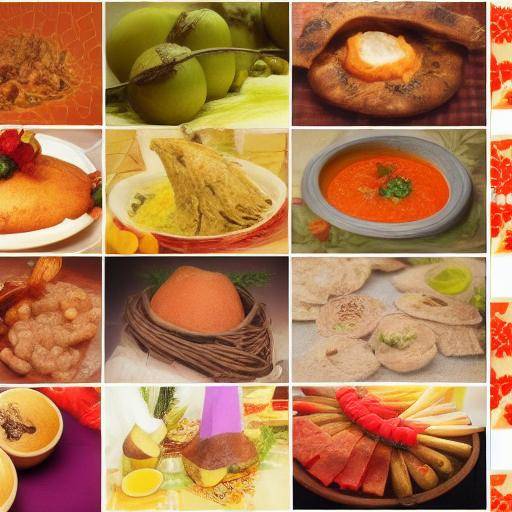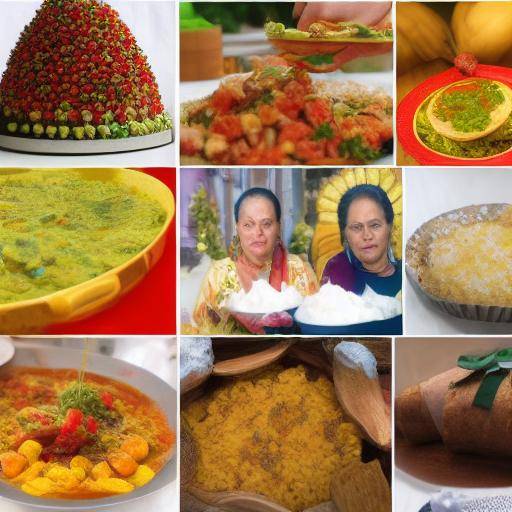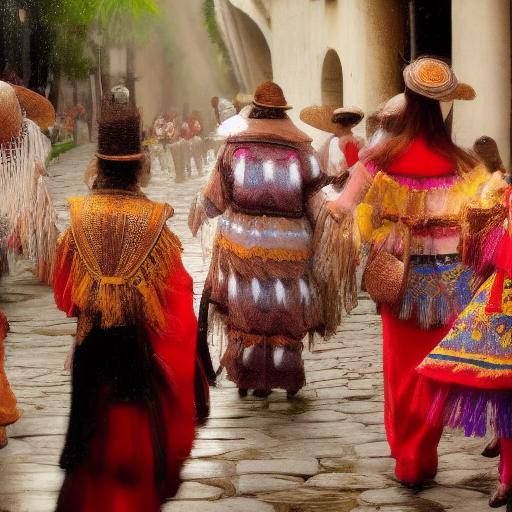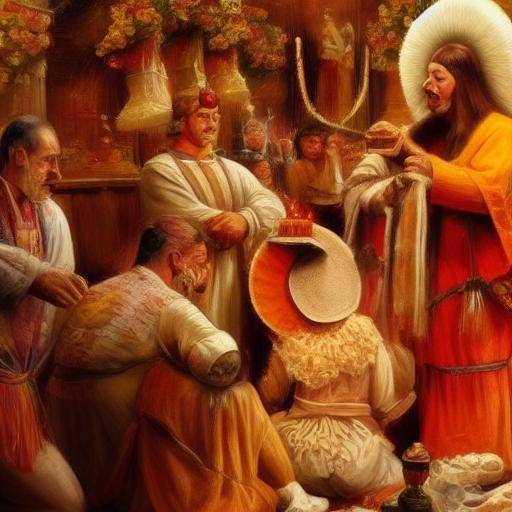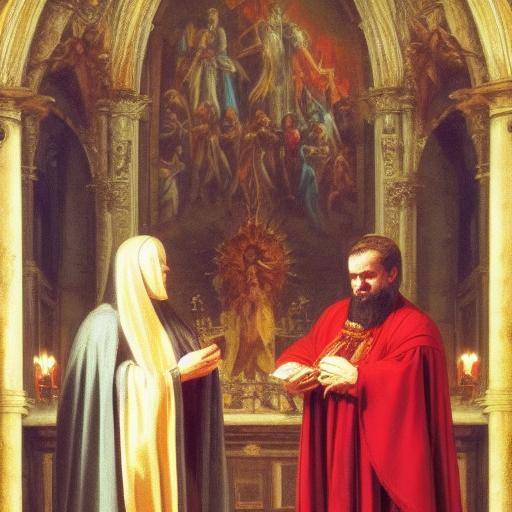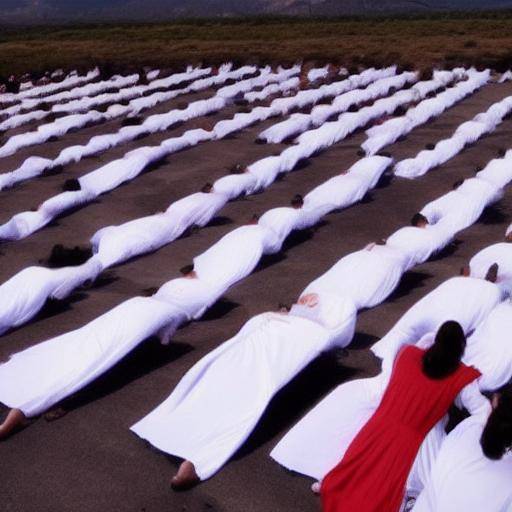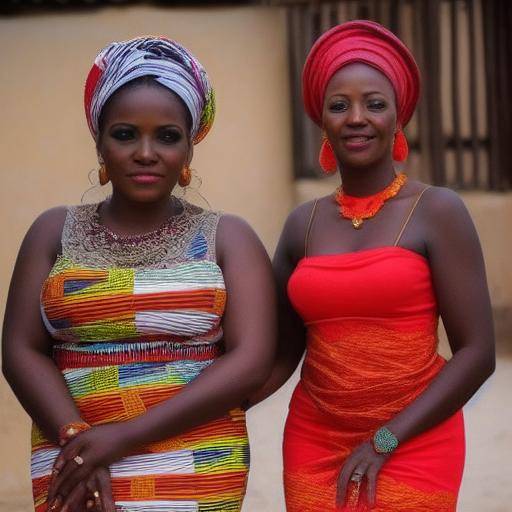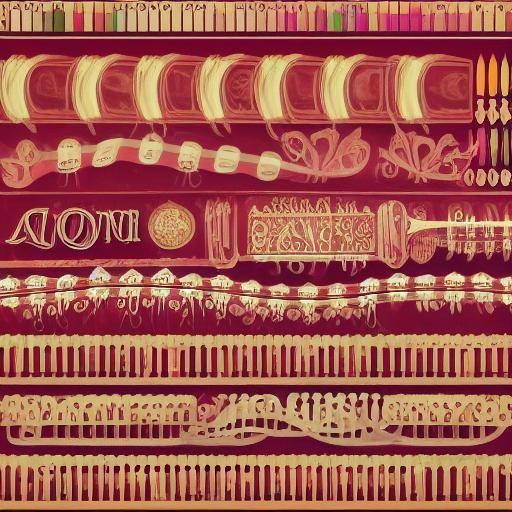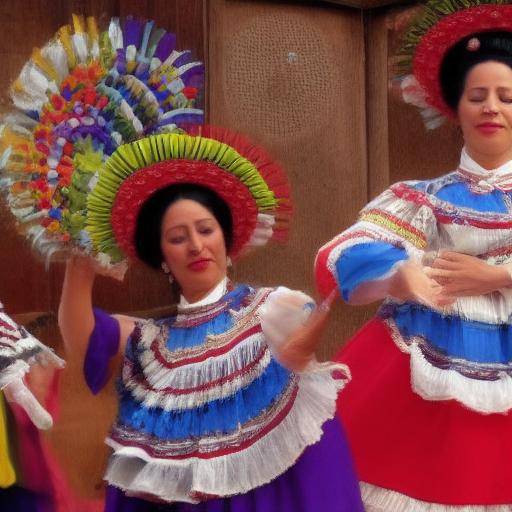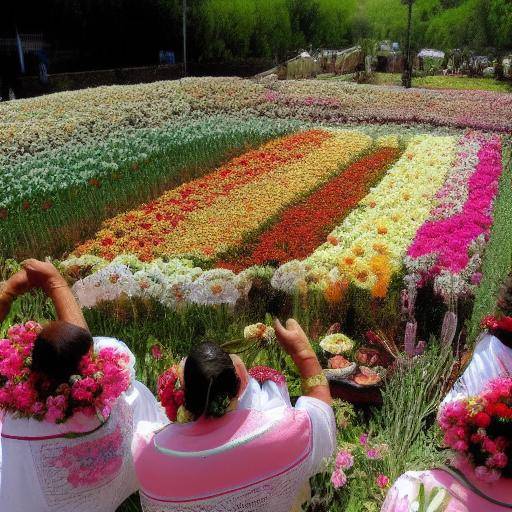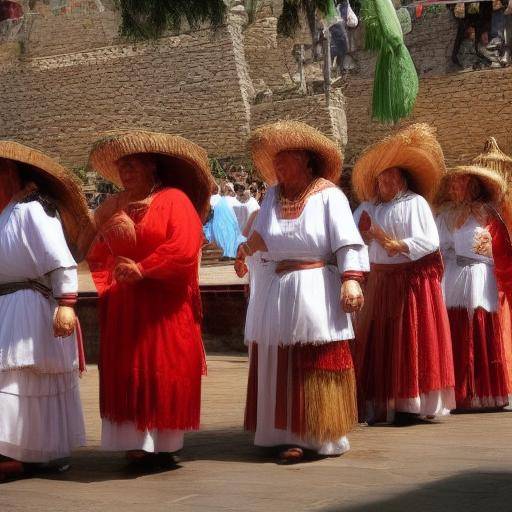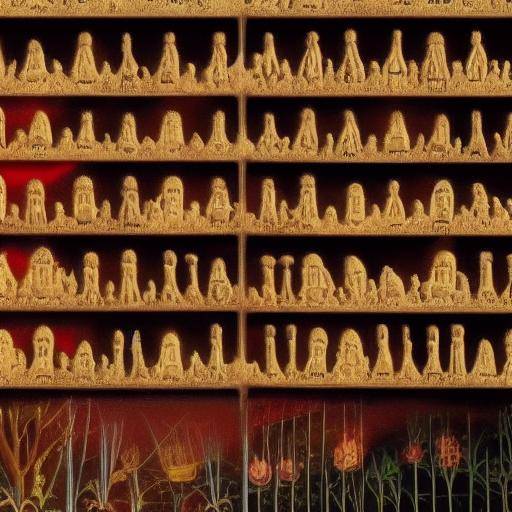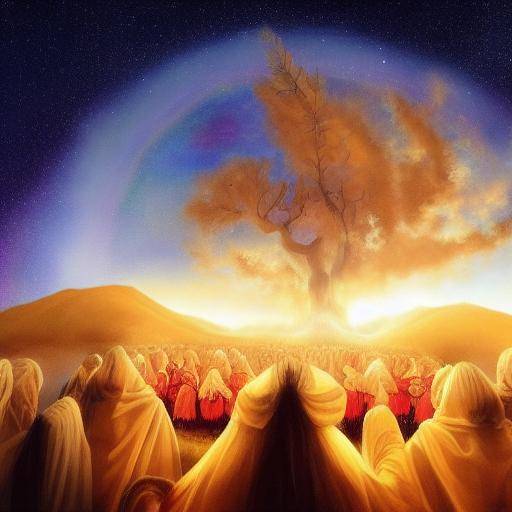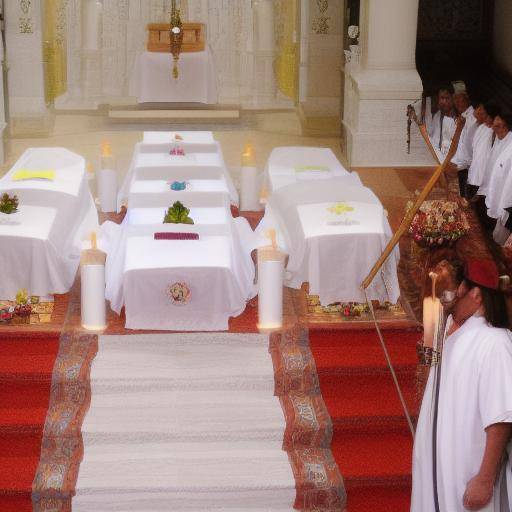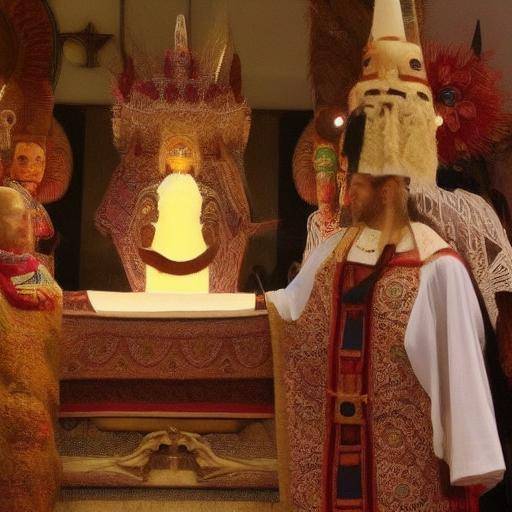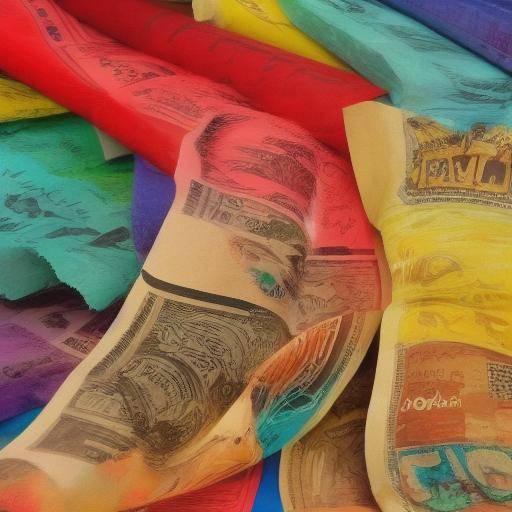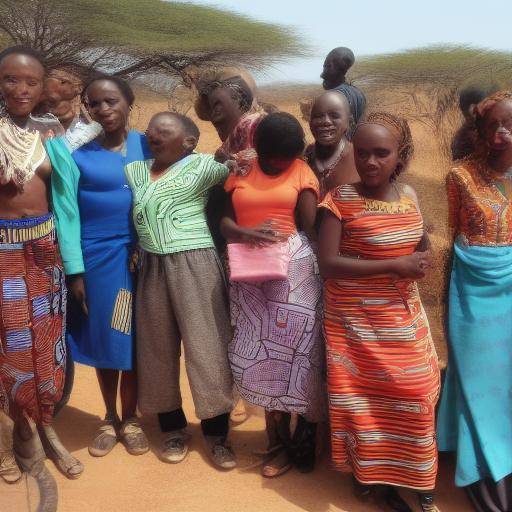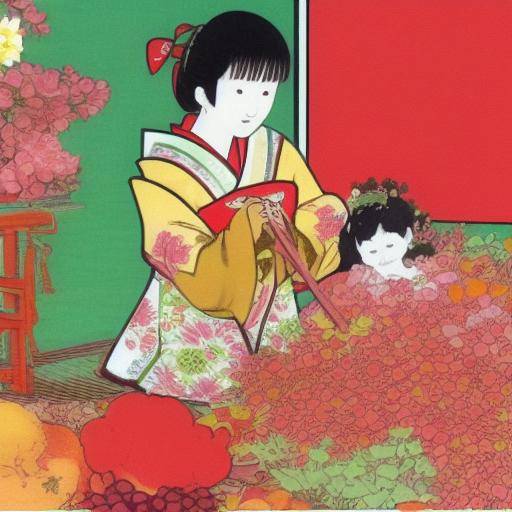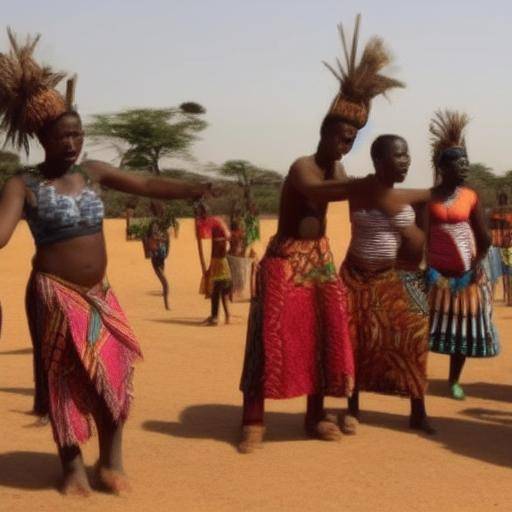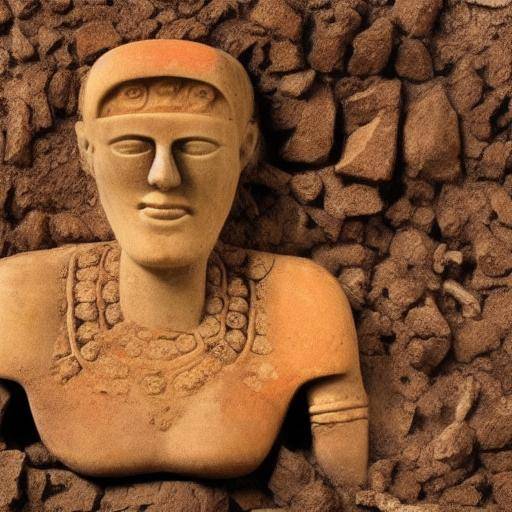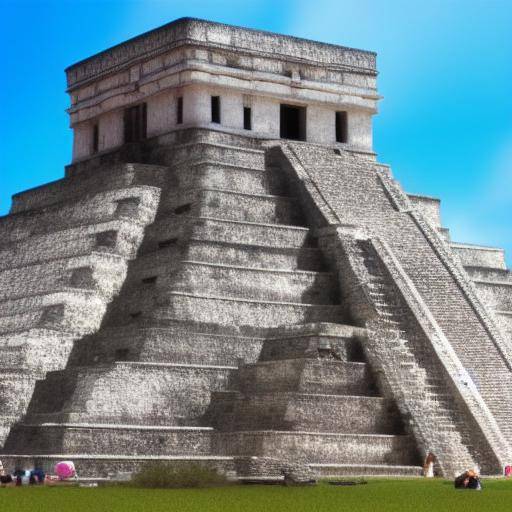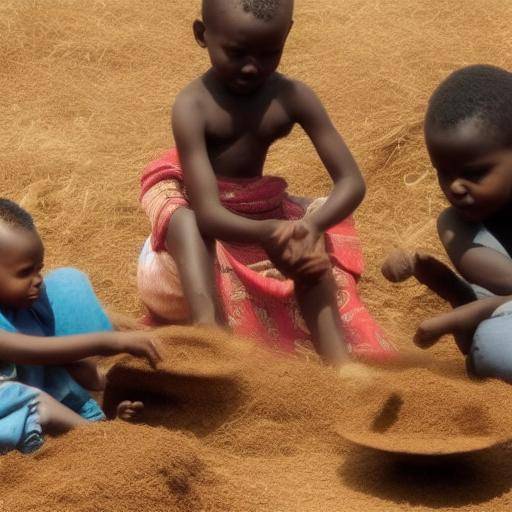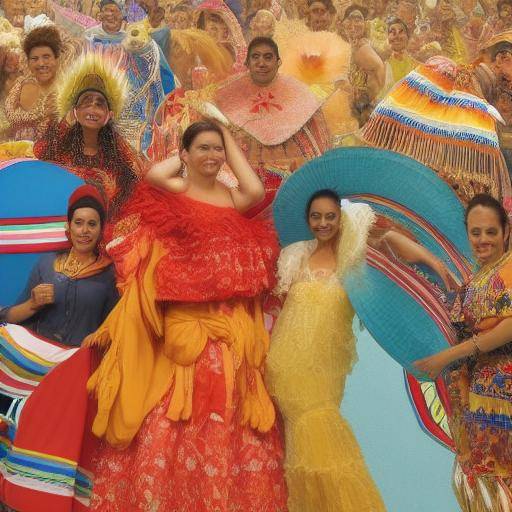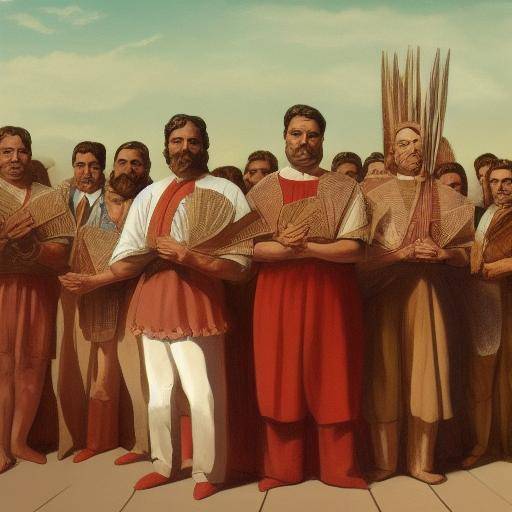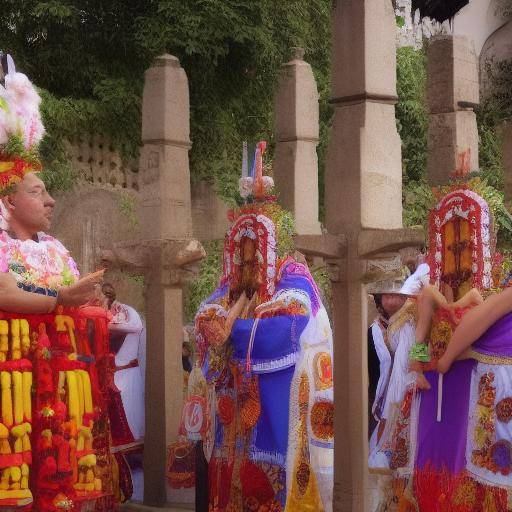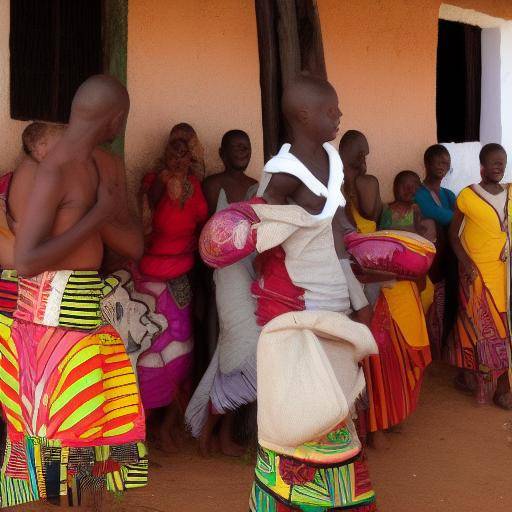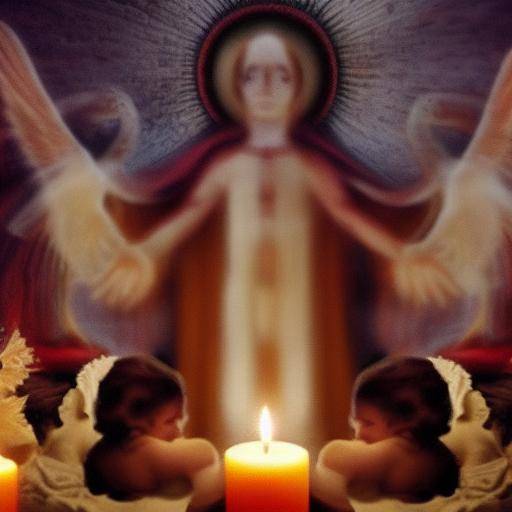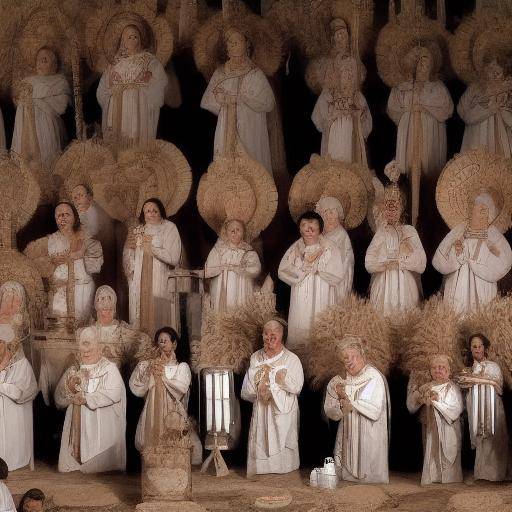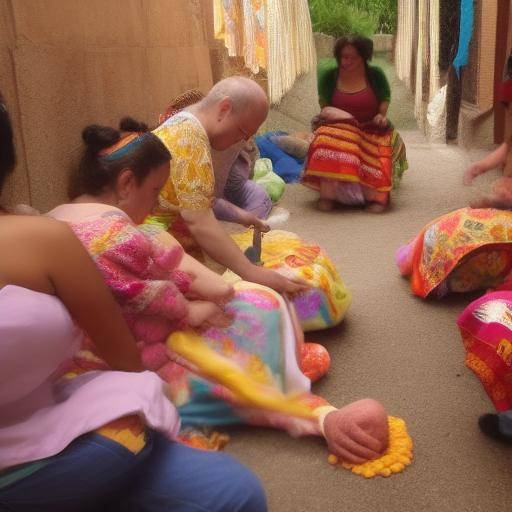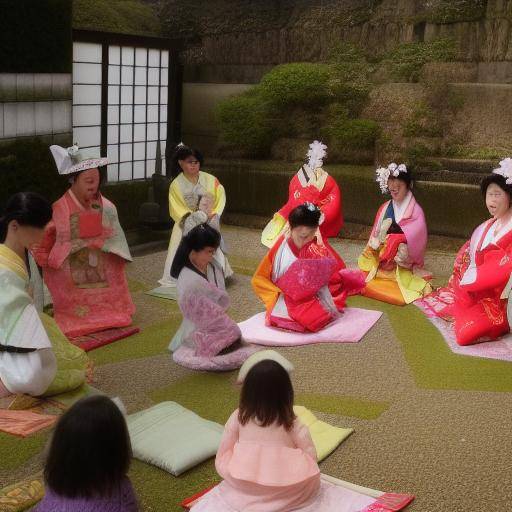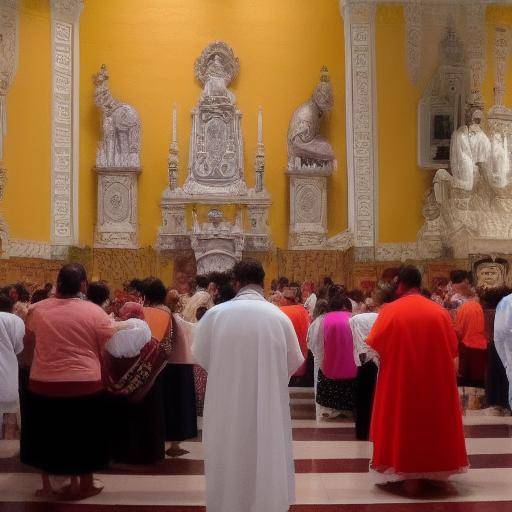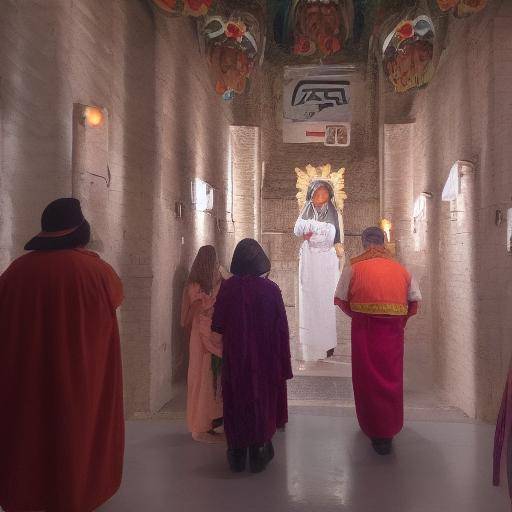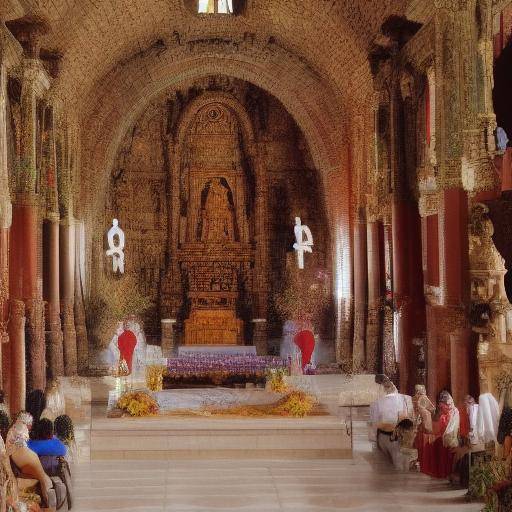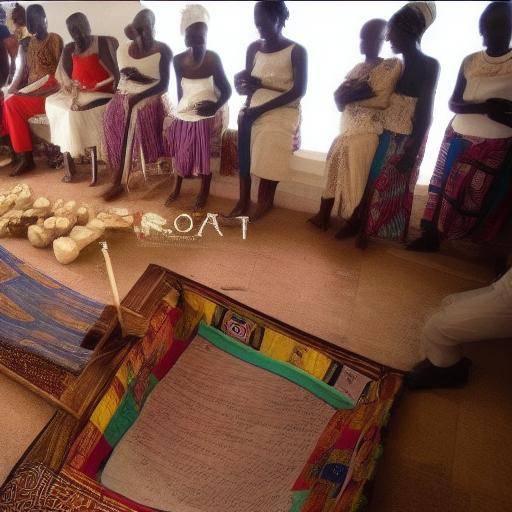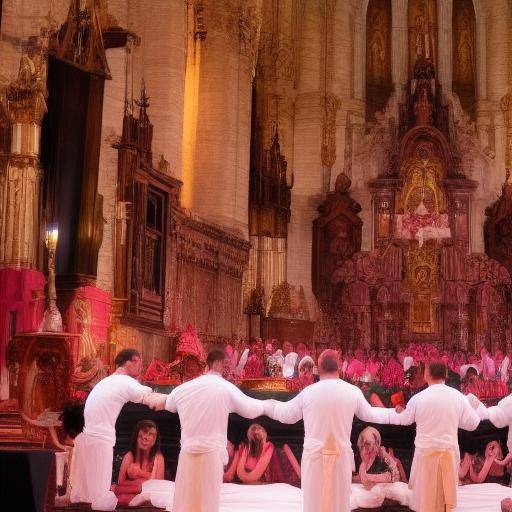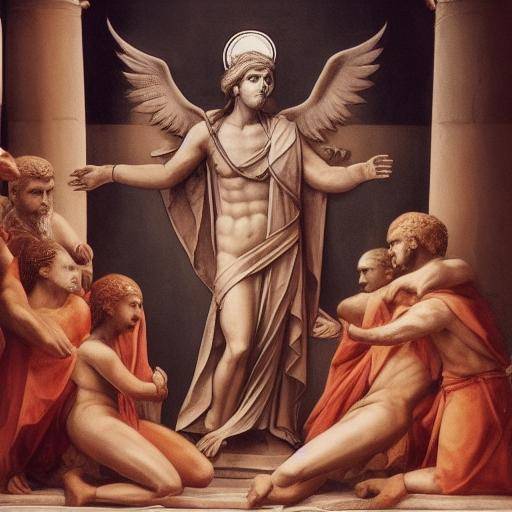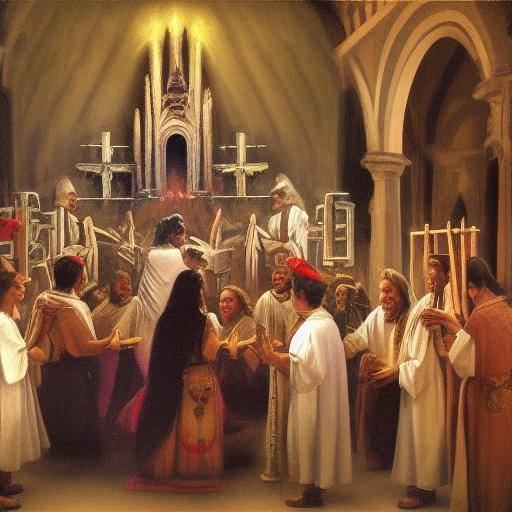
The sacred rituals in African culture are a profound manifestation of the connection between the human and the divine. These ancestral practices have been fundamental to the spiritual development, social cohesion and understanding of the world in various African communities throughout history. In this thorough exploration, we will discover the transcendental meaning of the sacred rituals in the rich and diverse African culture.
Introduction
African culture is known for its profound spirituality and rich diversity of ritual traditions. The sacred rituals occupy a central place in these cultures, linking the religion, the worldview and the daily lives of African communities. In this article, we will explore the essential meaning of the sacred rituals in African culture, its historical importance, its contemporary relevance and the various forms in which people live. We will immerse ourselves in a fascinating journey through the sacred practices of different ethnic groups, and unravel the spiritual and cultural richness that infuse the daily lives of Africans.
History and Background
The sacred rituals in African culture have profound historical roots that intertwine with the daily realities and spirituality of communities. From the ancient kingdoms of Egypt and Kush to the various tribal cultures and civilizations that have flourished over time, the sacred rituals have been a leading thread that unites people with their ancestors, gods and natural forces.
Origins and Evolution
The sacred rituals in African culture date back to time immemorial, rooted in the animistic, polytheistic and monotheistic beliefs that have shaped the diverse spiritual traditions of the continent. From initiation ceremonies to healing practices, sacred rituals have evolved to encompass a wide range of expressions that reflect the complexity and diversity of African cultures.
External Influences and Cultural Resilience
Throughout history, African cultures have interacted with external influences, such as the trans-Saharan trade, the arrival of missionaries and the impact of colonialism. Despite these influences, the sacred rituals have shown remarkable resilience, adapting and resisting cultural assimilation, which has allowed them to perish over the centuries.
Deep analysis
Sacred rituals play multiple roles in African culture, acting as vehicles for spiritual expression, community cohesion, knowledge transmission and healing. These practices transcend the limits of the ritual, permeating the daily life and providing a framework to interact with the divine, the ancestral and the natural.
Meaning and Symbolism
The sacred rituals in African culture are imbued with a profound symbolic meaning that reflects the unique worldview of each community. The ritual objects, gestures, symbols and narratives associated with these rituals are intrinsically linked to the understanding of the world, the collective history and the role of the individual in society.
Links
The sacred rituals honor and connect past generations with present and future, establishing a bridge between the visible and the invisible, the palpable and the spiritual. These rituals strengthen family ties, promote cultural continuity and honor the collective memory of the community.
Relationship with Nature
The intimate relationship with nature is a fundamental pillar of many African sacred rituals. Through dances, songs, offerings and ceremonies, African communities express their deep respect and reverence for the natural environment, recognizing the interdependence between human beings, animals, plants and elements.
Sanction and Renewal
Sacred rituals play a crucial role in physical, emotional and spiritual healing. Through ritual practices such as traditional medicine, trance dance and purification ceremonies, it is sought to restore balance and harmony in the individual and community, alleviate suffering and revitalize the spirit.
Practices and Traditions
The spectrum of sacred rituals in African culture is extraordinarily diverse, ranging from passing ceremonies and fertility rituals to artistic expressions and festivals. Each ethnic group, cultural group and geographical region provides its own range of ritual practices, enriching the spiritual and cultural upholstery of the continent.
Initiation Ceremony
The initiation ceremonies are a fundamental aspect of sacred rituals in many African cultures. These ceremonies mark the transition from childhood to adulthood, giving the individual a renewed social and spiritual status. Through symbolic trials, teachings and rituals, knowledge, values and responsibilities are transmitted to younger generations.
Funeral and Ancestral Rites
Funeral rituals are a highlight in the ritual and spiritual life of many African communities. These rituals honor the deceased, facilitate their transition to the spiritual world and guarantee their continuity in collective memory. In addition, the cult of ancestors plays a vital role, as the spiritual support and guidance of those who have died are sought.
Contemporary Influence
Despite the challenges such as globalization, urbanization and the influence of prevailing religions, the sacred rituals in African culture remain relevant in the contemporary world. Many communities have found ways to preserve and adapt their ritual practices, keeping their cultural and spiritual importance intact.
Revaluation and Reinterpretation
In response to modern challenges, there has been a renewed interest in sacred rituals in African culture, both locally and globally. The revaluation of these practices allows younger generations to reconnect with their cultural and spiritual roots, revitalizing old ceremonies and adapting them to contemporary realities.
Conclusions and FAQs
Conclusions
The sacred rituals in African culture represent a valuable spiritual and cultural heritage that has resisted the test of time. These practices, rooted in the unique worldview of each community, offer deep links to the past, nature and the divine, enriching the lives of those who participate in them.
Frequently Asked Questions on the Sacred Rituals in African Culture
1. What role do religious and spiritual leaders play in African sacred rituals?
Religious and spiritual leaders play a crucial role in organizing and performing sacred rituals, acting as mediators between the community and the spiritual forces.
2. How have African sacred rituals evolved in urban areas and the African diaspora?
The adaptation of African sacred rituals in urban environments and the African diaspora has led to new ritual expressions that reflect contemporary realities and cultural diversity.
3. What is the role of music and dance in African sacred rituals?
Music and dance are fundamental elements in many African sacred rituals, serving to invoke the spiritual, express emotions and strengthen community ties.
4. How do knowledge is transmitted ritHow do the ritual knowledge of one generation is transmitted to another in African culture?
The transmission of ritual knowledge in African culture is carried out through oral learning systems, practical teachings, initiation ceremonies and active participation in ritual practices.
5. What is the role of traditional medicine in African sacred rituals?
Traditional medicine plays an integral role in African sacred rituals, providing healing methods that address the physical, emotional and spiritual well-being of individuals and communities.
6. How do African sacred rituals influence the identity and self-esteem of people?
African sacred rituals strengthen the cultural and spiritual identity of people, providing a sense of belonging, connection with history and deep self-esteem.


